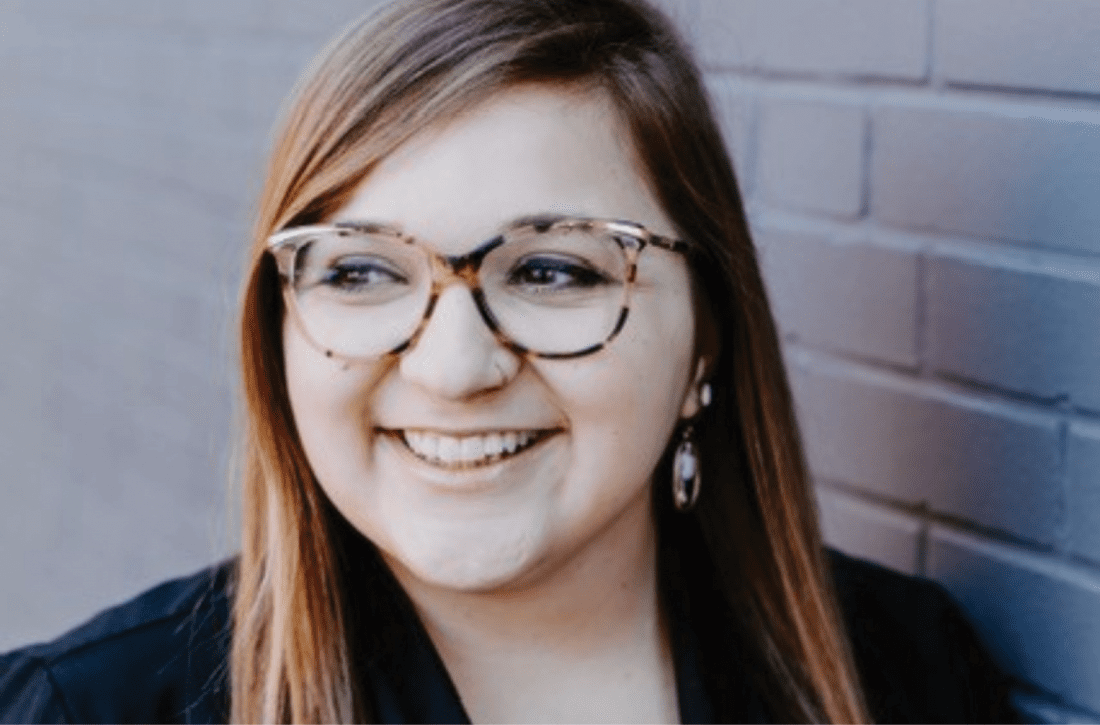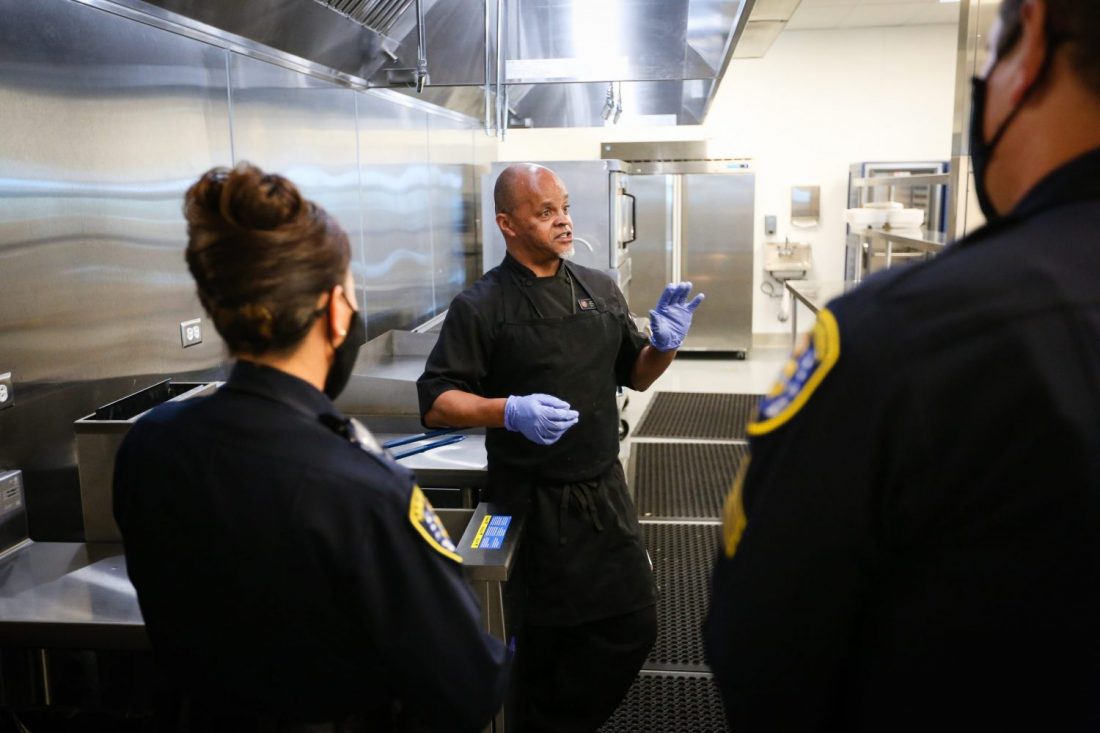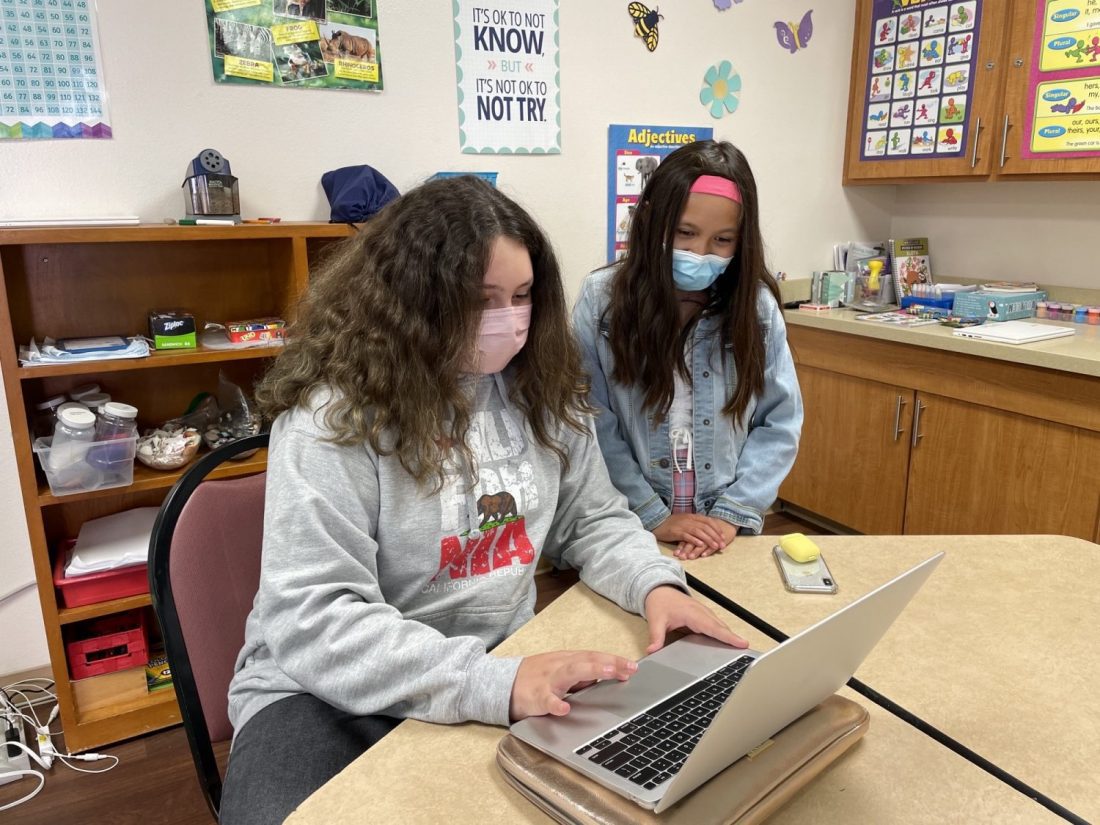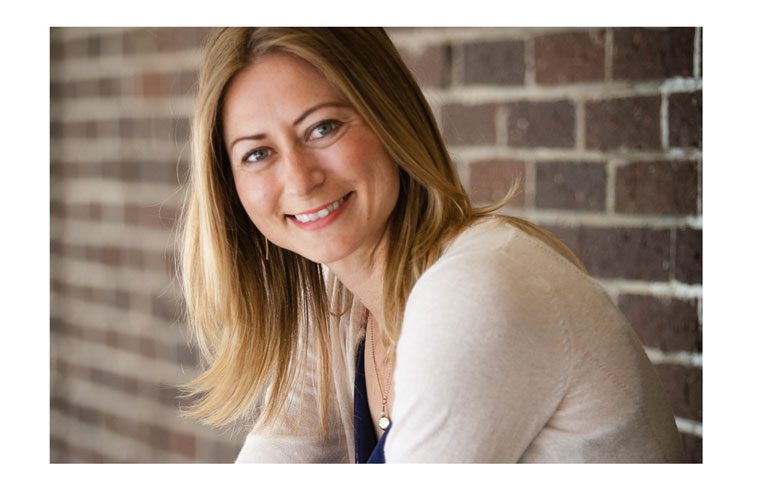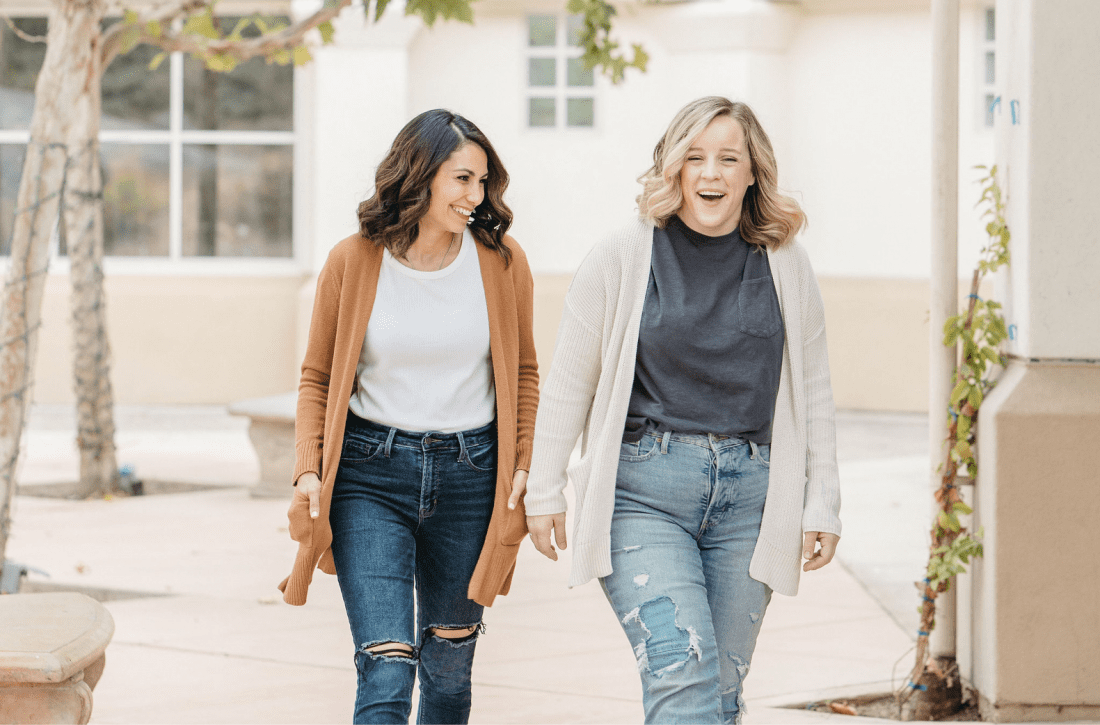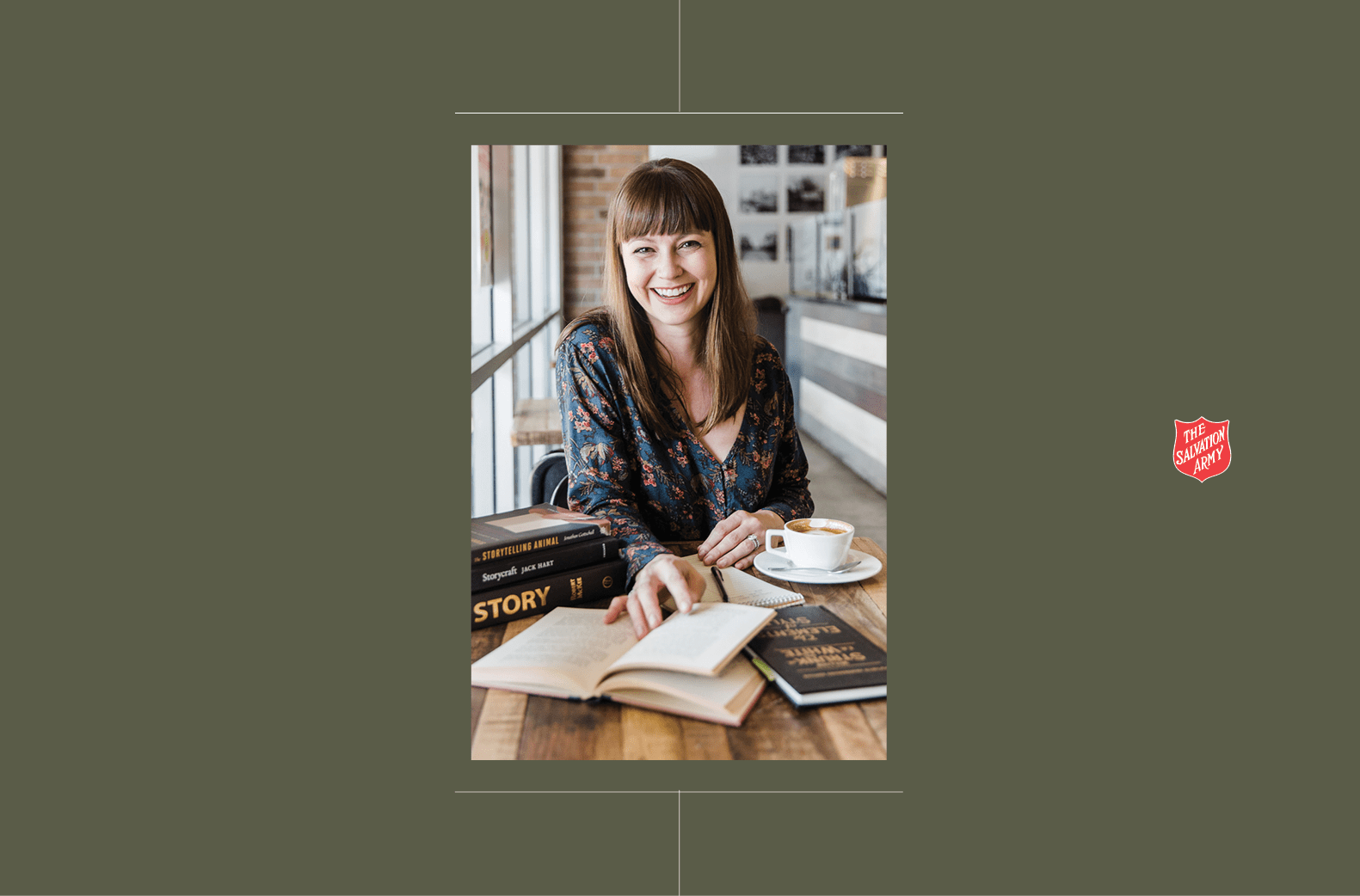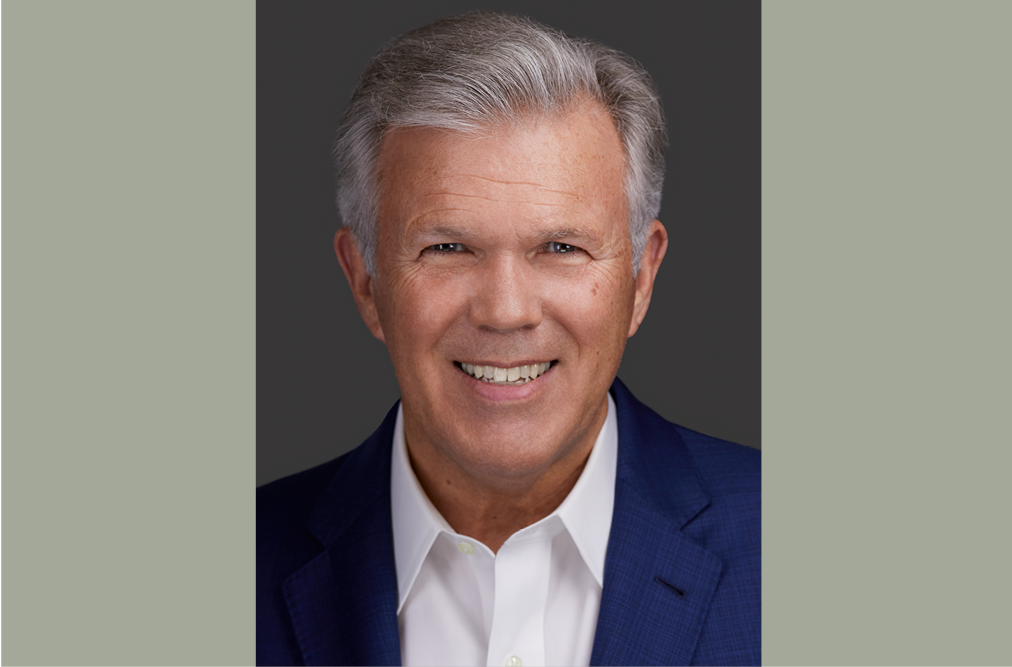Oh, social media. We love it, and loathe it. Is it a blessing or curse? Friend or foe? How can we use it for good?
In this episode, our hosts—Cassandra Amezquita and Meagan Ruff—interview Lauren Birks about her own experience with social media. Birks, an Administrative and Program Assistant for The Salvation Army Santa Monica Corps in Santa Monica, California, shares how she’s defined her own boundaries online while using her platform to connect with others and spread joy.
Show highlights include:
- How old Lauren was when she started using social media and what she remembers about it.
- Some of her most meaningful uses for social media.
- The negative impacts of using social media.
- Intentional ways she uses social media to make an impact on others.
- Some boundaries she has set up so social media isn’t a distraction or a burden.
- A few weird moments Lauren has had on social media.
- A call to action for podcast listeners.
Listen and subscribe to The Commons Podcast now. Below is a transcript of the episode, edited for readability. For more information on the people and ideas in the episode, see the links at the bottom of this post.
* * *
Cassandra Amezquita: So today we’re talking about social media and I want to give a little bit of my own experience. Normally what I use social media for is– I mean, of course, when I couch-potato it and skim through mine, mostly sometimes I find myself doing that at the end of the day when I’ve just had an exhausting day. But recently what I found most useful is relating to others’ experiences and getting to know people’s experiences, who I’ve never really heard about. For example, some people of color communities or people that are fighting for social justice, activism, biblical equality, all that stuff that I never even imagined there would be like a world of knowledge in social media. The general way I’ve used social media has been mostly to connect with family and friends that I don’t get to see often.
Wouldn’t you say that sharing those cute pictures of our kids keeps people informed, connected and up to date with how we’re doing? Also looking at people’s stories and their posts helps me feel a little bit up to date on how our loved ones are doing. So that’s usually my go-to–of course there’s definitely other ways, but I have found that putting up appropriate boundaries so that I don’t just mindlessly scroll is most beneficial. There’s many pros and there are so many cons to this topic and I’m sure everybody has their own way of doing it. But Megan, you have something to share don’t you?
Meagan Ruff: Yes. The way you said that it’s funny, like it’s a secret. In regards to social media– a couple of years ago, I started turning off all of my notifications on my phone because the constant buzzing of my phone was getting to me. I don’t get a buzz for anything on my phone unless someone is calling because then I figure it’s probably an emergency. Before, I was still mindlessly scrolling fairly often. So last summer, I felt like I was supposed to not use social media for a while– so I decided to have a fast or break for about three months. So from whatever day it was, I was like, “yeah, this is the day that I just need to turn it off until new year’s or Christmas.” It was kind of weird too, because like you were saying–posting pictures, like of my girls for family to see and stuff like that, I was like, “Oh man, now I have to intentionally like take pictures and send them to my mom, send them to my mother-in-law, send them to grandparents” instead of just being able to post to one place.
But it was really worth it. I think it changed the way that I look at social media. It also brought about us doing this podcast. I was doing that fast when we decided, “Hey, let’s do a podcast.” And I think it kind of made me be more intentional and more creative with social media rather than just consuming it. I thought it worked out really well and I’m really glad I did it. I don’t know if I’m going to do it again anytime soon, but it has changed the boundaries that I have up for social media.
Cassandra Amezquita: I agree. I feel like turning off those notifications makes a big difference because we don’t need to be notified on every photo we might be tagged in or who likes somebody else’s posts. That’s definitely like a waste of time. I forgot where I heard it but I heard that we look at our phones every five minutes or so—it might be less now in the pandemic, but like literally picking up your phone to look at it. It’s just so frequent, even though you’re not even looking at much, it can be pretty distracting.
Meagan Ruff: Yes, definitely. And yeah, I definitely look at my phone a lot more because of the pandemic and I try not to be hard on myself about that. But I’m trying to balance or figure out how to create more than I consume.
Cassandra Amezquita: Also I think, you and I have like this little ritual every now and then when we will back to back send each other reels (on Instagram).
Meagan Ruff: Yes. Like a thousand reels.
Cassandra Amezquita: Would you like to say anything about it? We just laugh at what the other sends.
Meagan Ruff: Yes. And it’s funny because I can tell when we’re doing it at the same time, because I’ll be sending a bunch of reels and then I’ll exit, you know, cause like the way Instagram reels are, you’re kind of in a separate part of the app and you can’t see everything else. And so then I’ll go back to the main homepage of the app and I’ll be like, “Oh my gosh, I have so many messages.” And it’s because you were sending me reels at the same time, but you also didn’t see me sending you reels.
Cassandra Amezquita: It’s pretty, I mean, people are hilarious on there! And it’s funny how you can relate to others in the world. I would have like a million views.
Meagan Ruff: Yeah. I’m like, “wow, my life really is exciting because I do this exact same thing and they got like 17 million views!” So I don’t even need to do it for social media, you know, people would like it.
Cassandra Amezquita: Because I always like to say, if somebody were to see a glimpse of our life, then we would have viral videos. But then I’m like, “eh, too lazy.”
Meagan Ruff: Exactly, exactly. I don’t need that kind of pressure in my life. I don’t want to be an influencer.
Cassandra Amezquita: Somebody today that we have as a special guest, Lauren Birks, she is a good influence on social media and so we invited her.
Meagan Ruff: I was going to say she is a famous influencer.
Cassandra Amezquita: And we really did think of her when we were brainstorming for this topic. I think she has a lot to share because she grew up with the generation that had social media pretty young, like early teens. She’s been around it a lot, but we would love for you guys to hear her experience today. She has some good things to share.
Meagan Ruff: Awesome. All right, Lauren, we’re going to start with some rapid fire questions. These are questions that are kind of fun. They’re kind of silly and they get the conversation started and can ease any nerves like I have or you have. I know I always get a little nervous, but you know, whatever! Our first one is what’s your top favorite food?
Lauren Birks: That’s a hard one because right now I don’t eat a lot of things. I’m slowly cutting a lot of things out. So, I want to say lasagna, but I’m not eating cheese. So I can’t do that. But my newly discovered favorite food is buffalo cauliflower. I get it at any restaurant I go to that has it–100%. I will get it.
Meagan Ruff: Nice. Have you ever made it yourself?
Lauren Birks: Yeah, I just bought an air fryer, so we tried it. It wasn’t as good, but it works nice—spicy and crunchy.
Meagan Ruff: Okay. I’m a fan of cauliflower. So I would try it.
Lauren Birks: It’s so good. You can use it with anything, we made tacos with it yesterday.
Cassandra Amezquita: Buffalo cauliflower tacos?
Lauren Birks: Not buffalo cauliflower tacos.
Cassandra Amezquita: I mean, I’ve seen some videos of people making stuff like instant tacos and I’m just like, “no, don’t do this.”
Lauren Birks: They were just regular tacos, but with cauliflower instead of meat. So I guess that’s not regular, but…
Cassandra Amezquita: In the vegan world, Mexican street taco.
Meagan Ruff: All right. I would give that a try too.
Lauren Birks: It’s good.
Cassandra Amezquita: I’m convincing myself that if you want to do a vegan taco, you can just put some good beans in there.
Meagan Ruff: Next question is what’s your favorite hashtag?
Lauren Birks: My favorite. I actually do it in a lot of the posts I do. It’s just #JoyInAllThings because I like to find joy in all things. So that’s my favorite personally, but I don’t know if I like a trending one. I don’t even know any.
Meagan Ruff: I like that. Yeah, that one’s good.
Lauren Birks: Yeah. That’s what I do in a lot of mine just because I like to relate a lot of my posts through each other.
Meagan Ruff: Yeah. That’s perfect. When I saw that question, I was like, “dang, what’s my favorite?” I don’t even know. So next, what’s your coffee order?
Lauren Birks: I get an iced vanilla latte without milk. Good. Pretty much a really good staple. Although Peach just came out with a North shot latte with milk. So, that’s also really good. The cinnamon adds a lot. Also if I go to a bougie coffee shop, I really like the lavender lattes.
Meagan Ruff: Ooh. Yes.
Lauren Birks: So it just depends on where I am. My everyday go-to order is just an iced vanilla latte. Always iced.
Meagan Ruff: Yes. Well, I’m drinking an oat milk latte right now, but it has brown sugar, not vanilla. I made it at home, so I don’t have vanilla syrup at home. So try Brown sugar. It’s really good.
Lauren Birks: That sounds really good.
Meagan Ruff: It is. And oak milk, It makes all the difference. So creamy.
Lauren Birks: It’s so bad, but they have a shortage right now.
Meagan Ruff: Yeah, we don’t have it in Hawaii. Like all of our Starbucks, they don’t have it. We have it at our house, but Starbucks is like, we’re out. And I don’t know when we’re getting it back. You only had it for a week.
Cassandra Amezquita: I tried making oat milk ones and it tasted really good. Fresh, but yeah, I made it. It’s so easy. We can put the recipe in the show notes, But it was just so easy to do.
Lauren Birks: Okay. Also cost efficient.
Meagan Ruff: Do you just use oats? I’m sorry. This is like getting on a tangent..
Cassandra Amezquita: I literally just put water and oats and blended it and then strained it and it tastes so good. Fresh. I’m saying fresh because I don’t recommend refrigerating it, it tasted a little bit slimy after two days. But the first day it tasted so good.
Meagan Ruff: Yeah. Cool. That sounds so easy. I have so many oats at home. Okay, next question, what’s your go-to song lately for your faith? It can be your favorite ever or your go-to right now.
Lauren Birks: Dang. Anything Maverick City Worship. I’m like 100% on right now. Also Leon Bridges, if you need a good power vocal, that’s the one.
Meagan Ruff: Ooh. Okay. I like that. I’ve already got great notes written down and we’ve only gone through the rapid fire question! This is awesome. So today we’re talking about social media as you know, which is why we invited you on the show, so Lauren, how old were you when you first started using social media? And what do you remember about when you first, you know, got whatever social media you had?
Lauren Birks: Yeah, it was different for different platforms. But I was 14 when I got Facebook. Cause I wasn’t allowed to get it on unless, you know, the things that when you sign up, you have to be a certain age. Like I had to be honest about that. That was my 14th birthday on the dot when I got my Facebook. Then I was almost 15 when I got Instagram. So yeah, I guess I’ve had it for a while. And then Snapchat or whatever, like all that came out later. So whenever that came out, but what I remember about it–everything was so much simpler. I was thinking about this. Like, I don’t think there were stories. There weren’t stories, at least on Instagram. Everything was just really basic, just like photos and words and a lot of filters. I used a lot of filters. Like I was looking back on my old, my first couple of posts and I was like, “wow.”
My very first post or second or something on Instagram was my summer camp where I was working, Camp Arnold. And then like how I set up my whole bed with like One Direction posters and everything.
Cassandra Amezquita: Oh God.
Lauren Birks: Yeah. Very simple and lots of filters. That’s what I remember.
Meagan Ruff: Yes. I remember when I first got Facebook, which was not my first social media. I had Myspace before that. But Facebook didn’t let you have an actual status. Cassandra, do you remember this? Like an actual status? Like it used to be that you had like a little dropdown menu and it was like, Megan is…”happy” or “busy” or…”at work” or “at school.”
Cassandra Amezquita: I remember, like there was one that was like, “is confused.”
Meagan Ruff: Yep. So it was like, you know, “Megan is…” whatever. And then they took away the “is,” and you can just post whatever, but that’s so funny. So old school, Facebook.
Lauren Birks: Yeah, that was before I got it. For sure. That’s funny. I know when I used to look on my parents’ Facebook and stuff, just to like, see how people are doing. And they had buttons, I don’t even remember what it was, a certain band or something. You could pin this button. But that was before I had it.
Meagan Ruff: I forgot about that. I wish I could go back and access that to see what buttons I had.
Lauren Birks: I heard you could go on someone’s profile and there’s music playing, like whatever song you want people to hear. Like that’s cool. You change the background too.
Meagan Ruff: You could customize it and yeah. And then you also would pick what friends showed up on your main page. So it was like a big deal who was like your number one, like your top eight. And you could move those top eight around, out of however many friends you had. But like that was like all the drama in late middle school, early high school. Like, “ I saw that you put Nicole as your number one friend and yesterday I was your number one friend. Did I do something to make you upset?” And the, you know, that was the life
Cassandra Amezquita: Drama. Yes. I mean, social media is definitely something that can be used for lots of good. So we were wondering Lauren, what’s some meaningful ways that you use social media?
Lauren Birks: Yeah. Something that I’ve been using recently is support groups or just groups in general for whatever. Like I’m on like one that’s called “Trader Joe’s for Busy Moms,” and I’m not even a mom, but that one’s fun. Because it gives you all the cool meals to make and stuff, but they added. Another group is “Hikers of LA.” Where everyone posts where they went hiking this weekend and like how to get there and everything. So those are things that have been really meaningful for me lately to be like a part of those communities with people you don’t know, but are similar minded or even if it’s like a mental health thing, all of these different types of groups being a part of those is so, so helpful. And that’s something like recently, like just this year, 2021 I’ve been joining.
Other things that are meaningful ways for me to connect on social media is just sharing about what brings me joy, kind of like that hashtag #joyinallthings, because I think there’s just so much that opposes joy and I want to reflect something different. I also started a blog last year because I really enjoy writing and it’s been a really great way for me to heal in a lot of different ways. So I’m using that as a platform to kind of like share my words and it has been really meaningful, not just to hear people respond in positive ways, but because like, I’m just hoping that putting it out there will be meaningful to someone or inspiring to someone or like encouraging or whatever.
Meagan Ruff: I definitely think that’s great! Sharing your story on that kind of platform. There’s definitely people who can connect that have maybe gone through something similar or just I’ve read your blog and I feel really encouraged just by you putting yourself out there and sharing your story, even if my story isn’t similar. So I really liked that.
Lauren Birks: Yeah. It’s been really a really cool way to reach other people, which are people who I wouldn’t have even expected to have reached out and been like, “thank you.” Like I needed to hear that. It’s just good to have people to know the other people are going through similar things or like I can see myself in different situations or whatever. And still showing joy and positivity and like it’s not the end all be all. It’s just sitting in that feeling, you know?
Meagan Ruff: Yeah. Definitely. I think it helps people feel less lonely too. Like, “Hey, I’m not going through this by myself. Like somebody else’s speaking out and that takes courage.” I’ve been in a lot of groups, there’s one that’s called, “plant hobbyist.” And it has thousands of people and there’ll be like, “check this beautiful baby plant that I got, how do I save him?” And then like a million people will comment and be like, “let’s do this, do this” it’s so fun. It’s really fun. But there are other ones, like you were saying, there’s other ones that I can connect in. Like groups for moms of preschoolers who are also officers. We don’t necessarily talk about officers’ stuff that much, it’s more like baby and toddler stuff. And it’s nice to have someone posting to like, “Oh, my house is a wreck. I am sure I’m not the only one.” And I look at it as I’m sitting in my house, that’s also a wreck and I’m like, “okay, I’m not alone in this,” and I can send them a picture and be like, “okay, mine is the same, don’t worry we’re together on this.” So those are really ways to like to meet new people and also keep in contact with friends that are in a similar situation. So that was all like the positive stuff about social media. What are some of the negative impacts, either things that you see or like specific experiences?
Lauren Birks: Yeah. There’s so many it’s so hard to narrow it down. But, I think as cliche as it is–I don’t think it can ever be over said like so much of social media is morphs. Like the social norms and views about specifically because I’m a woman–like what a woman should look like or how women should act or, there’s so much like sexualizing women, and men actually. So I think through that comes, you know, vanity or comparison, and then that just like leads into so many other things. For me personally having so much access to different accounts or different people’s lives or whatever, celebrities, anything like that–for a while, it wasn’t healthy for me to be able to like, just see all of that. Because all it is is just like, “Oh man, I wish my waist was smaller like that.” Or like, “Oh wow. Look at those clothes. I could never wear that.” Or whatever it is. And I don’t need to find value in that or like I don’t need to think of myself in this way or whatever. But social media did perpetuate a lot of those thoughts. So I think for me, a lot of that negativity of wanting to be a certain size or wanting to look a certain way for photos or wanting to portray myself in a certain light comes because I want the affirmation of likes and comments or whatever it may be. So, a lot of that has been hard for me for a long time and still is sometimes. I have a lot better boundaries now than I did before, but, there was so much for a long time. I had a really hard time my first couple of years in college, I was in a pretty dark space and I opened up to someone about that one time and I was like, “I’m having a really hard time and I don’t love my life right now.” And they were basically like, “Oh, it doesn’t look like that. Like all your stories or like what you post, it looks like you’re having a great time or whatever.” And that really hurt me and it doesn’t sound hurtful, but it really did. Because I’m like, “what do you want me to do? Like post a picture of myself crying in bed, like in the dark?” You don’t want me to post a photo about that. “Would that make you feel better?” I think a lot of the negativity too comes from not showing or reflecting your reality or your struggles or whatever. So there’s a lot of dishonesty. I think now it’s getting better, but that’s kind of been my experience.
Cassandra Amezquita: Yes, definitely. I mean, I think social media just allows people to show the best of what they consider their life. And that could be dangerous because if you get like a hundred likes for, you know, like a cute baby picture or you taking a nice selfie or something, it could really make people insecure in the sense like, well, this is what people like, you know, this is what I got to show them, which creates a perfectionism that’s unrealistic. Like you said. Yeah.
Meagan Ruff: And the influencer culture, especially on Instagram, these people are paid to show you the best parts of their life. They’re given the clothes to show you, to make you want to buy the clothes. That’s the whole purpose. And that’s not to say every person who’s an influencer is bad because people do it as a job. And that’s a legitimate way of making an income and providing for their family and whatnot. But, if you do struggle with that–which most people on some level do struggle with comparison and things like that–social media makes it harder when you don’t recognize or really stop and think like, “Hey, that outfit is really cool, but she was given that for free and also gets paid to wear it so that I would want to buy it. that makes it even harder.
Meagan Ruff: You mentioned boundaries, what are some boundaries like that you’ve set up? So that social media isn’t, doesn’t, you know, take you down a negative path or isn’t a distraction or burden, from other things in your life.
Lauren Birks: Yes, that has taken me a while to like, and I, it didn’t all happen at once. I wasn’t like, “okay, here are all of my boundaries,” but like over time, I’ve kind of realized what’s been healthy for me. I still want to be connected on social media. I want to be able to see how my friend’s kids are doing or how their vacation was or whatever. So one of the ways is I stopped having notifications, and a lot of that is because if I’m doing something, I want to be fully present in that place. Now it’s like if I post something or if someone DM’s me or whatever, it’s not the first thing I go to because it pops up on my phone. So, stopping notifications has been really helpful for me.
Also, lately, especially in like the last year and a half or so, I’ve been trying to be more inclusive in who I’m following. I listened to a podcast about basically how we, like, if I look at my bookshelf there, bunch of just like white men authors. And so I’ve been thinking about that a lot and trying to say like, “okay, well who’s influencing my days?” So now I have like other accounts that I’m following, where it’s people of color and women speakers and, you know, things like that. So I’m following other things like Brown issues, which is like this whole post of like Chicano and Latin American and Mexican-American people and their struggles. Just because that’s not my experience, doesn’t mean I don’t want to know about that.
I don’t follow celebrities anymore as kind of like a rule for myself because I don’t really, I’ve never really talked about this–but, I just don’t because it’s been good for me to not have that influence so much of my life. I still watch reality TV. So I don’t really know how much that’s different, but not following celebrities has been really good for me. Especially, because in the last three, almost four, I don’t even know three or four years, I’ve been recovering from an eating disorder. For several years I was bingeing and purging or restrictive eating. And because I wanted to look a certain way or I wasn’t happy with the body I was in or whatever. So, it’s been helpful for me to have a lot more reality in my life. And not that celebrities aren’t real people, but just like you’re saying, like with influencers or whatever, it may be, I just want to follow real, tangible lives that are transformative and showing and posting about important things, if that makes sense?
Cassandra Amezquita: Yeah, exactly. And I mean, that takes a lot of courage, first of all, thank you for sharing that. And I think like with the other comment that we said earlier, like people just hearing these stories helps them feel a little bit more brave of sharing it with somebody else. So thanks for being open about that. And it’s true. Like those little boundaries that we set for ourselves, whether it’s social media or, I mean, in our life with friends or, you know, with TV or however, Megan and I always come back to this– it’s like a full round a cycle, but boundaries is just a common theme in most of the episodes that we’ve done. And it’s, it’s so helpful and healthy to advocate for ourselves in that way. Right. It’s not easy. It’s not easy. Definitely. But it’s worth it. I think at the end of the day.
Lauren Birks: Yeah. For sure. Boundaries are so important. I think for so many reasons. I have a really hard time saying no, but now I’m working on it.
Meagan Ruff: Once you start saying no, and then you get in the groove of it. I’m like, “when do I really ever want to say yes?” That’s just to say, I like to be the contrary one. That’s like, Hmm. Yes.
Cassandra Amezquita: Usually if I’m struggling to say no about something, I’ll just text Meagan and I’m making it, “Why should I say no?”
Meagan Ruff: That’s perfect. You can always say no, just say no!
Cassandra Amezquita: So there’s probably some type of Facebook group about boundaries. So I’m going to go look it up after this.
Meagan Ruff: Yeah. I mean, we were like, “we should do an episode about boundaries.” And then we were like, “wait,” as we were kind of mapping out our episodes, we were like, “boundaries go in every topic that we have.” We’re going to address it in every topic. We don’t necessarily need a specific episode, although maybe someday in the future we will, but it’s come up in every topic so far.
Cassandra Amezquita: Yeah. That’s true. Okay. So the next question, you can either take this like really serious, or you can be silly with it, but have you ever had any weird or awkward moments on social media?
Lauren Birks: I just don’t know. I think a lot before I post anything. So, it’s not like I ever posted anything on accident or whatever, but the only thing I can think of is like one time, this girl, I want to say she was probably like 11 or 12. She was young and she DM’d me and she was like, “Oh, please, please, please. I need you to change your name so I can have this.” Like, you know, my Instagram handle. Like, she was like, “I need to have it. I need it, please, please.” Like, it was just like begging me to change to like, she’s like, “I’ll send you like $10 or whatever, because she wanted to have my name. And I was like, “no, I really like it. Thank you. I’ve had this for a long time. So weird and also so random.
Meagan Ruff: Do teachers have the same name as you?
Lauren Birks: It’s just my dad’s nickname for me. So, and then my middle name is Danielle. Yeah. So that’s always been my social media handle, but it’s just so funny. I don’t know why she wanted it, but I was like, “thanks. I’ll let you know if I ever change.”
Meagan Ruff: Somebody had my name as their, I think their Twitter handle, my married name. So when I got married I was like, “Oh, I want to change my name to Megan Ruff instead of my last name before.” And there’s this person. And it was so annoying because they didn’t ever tweet anything. And I was like, “Ooh, I wanted all mine to be the same, like my Instagram, my Twitter.” So I ended up putting my middle initial in, but I was so annoyed for a long time.
Cassandra Amezquita: Okay. Well, I haven’t ever posted anything on accident, but I feel like I constantly have to double check my mom’s page. She does that sometimes. And I love my mom, but I always like, I’m like, “mom, I don’t think you’re meant to like this picture of this person or meant to post this video of like these products in your company, like falling all over the ground and. And she’s like, Oh my gosh, how do I tell? So we’re like coordinating like all these things from five hours away. And I’m like, “okay, mom, like, you’ve got to go to here and…”
Meagan Ruff: That’s so funny. There’s nothing really that stands out. I mean, I have one story that I told Cassandra and I was like, “I don’t know if I should say on here,” but you know, in the sphere of authenticity I’ll just tell you. When I was in high school, there was this boy in my youth group and he was kind of notorious as the player of the youth group. Every youth group has one, of course. So anyway, he was mostly innocent from what I remember, but he would like, you know, tell one girl like, “Oh, you’re so beautiful. Like, “you’re my favorite blah, blah, blah.” But he would be saying the same thing to like every girl. And so, this is in the days of Myspace. So my friend and I made a fake MySpace and we found a girl’s picture on Google images, a model for some company. And literally, like you had to realize that this was not a real person. Like she had three photos and they were all in the same outfit. And they were against a white backdrop anyway. And she had a little headline that you could put like an inspirational quote or whatever. And I remember we were sitting in the office at my friend’s house, like her home office. And there was like a bottle of Febreeze. And we were like, what is the headline going to be? And then we saw the Febreeze’s, “it’s a breath of fresh air.” Anyway, we friended him and again, she had no friends, this girl, she friended him and he was like, “Oh, you’re so beautiful, blah, blah, blah.” And you’re like, “Oh, you’re so cool.” He messaged us like a hundred times. And then we were like, “okay, let’s just delete it.” And like, we felt justified in it, which is ridiculous. So funny. Yes. But not in a dangerous way, but yes. Other than that, I think having had social media for so long when memories pop up, I’ll read ones that are like, “this is from 12 years ago.” So besides that, now you guys know my deep, dark catfishing secret.
Cassandra Amezquita: What if you’re featured in one of the episodes of Catfish? And they just never aired it?
Meagan Ruff: Maybe it’s a great redemption story. Catfisher turned pastor. He’s going to listen to this podcast and be like, “I doubt it.”
Cassandra Amezquita: That’s awesome. So to wrap up this fun conversation, we want to ask you what would you say is a call to action you have for our listeners?
Lauren Birks: What I’ve learned is that likes or comments or reactions should not equal affirmation. And that’s not something that you can just hear and be like, “Oh yeah, true.” I believe that now, but really trying to accept that as truth in your life is so important. My call to action would be don’t wait for other people to initiate inclusivity or support or love to people who are hurting. Be that for someone, if you need that for yourself, be that for someone else as well. Allow vulnerability, like in sharing your story or whatever it may be, just being vulnerable and real and honest and transparent because that can be really healing for other people. I know it has been for me and I just really wish that more people were aware of that.
Cassandra Amezquita: If we could all be a little bit more transparent about our struggles and everything, I think it would be so much more empowering for a lot of other people.
Meagan Ruff: Definitely. I like that. Well, I don’t think we have any other questions. Lauren, thank you so much for coming on. Thank you for sharing a little bit about your story and we’re just so thankful for you being out here today.
Lauren Birks: Of course. Thank you so much.
Cassandra Amezquita: Thank you, Lauren–for your vulnerability and for reminding us how important social media can be, but also how important it is also to set those boundaries.
Thank you for listening to The Comments Podcast from The Salvation Army’s Caring Magazine, a magazine for people who care. People like you. Get on the list today to get the Do Good Digest with weekly inspiration and each new episode of The Commons Podcast sent straight to your inbox.
Additional resources:
- Follow Lauren Birks on Instagram.
- Follow The Commons Podcast on Instagram.
- Get inside the Caring Magazine Scripture Study Collection and find a suite of free, downloadable Bible studies to guide you through topics from New Beginnings Through Forgiveness, to Understanding our Imago Dei or Life Hacks From David.
Listen and subscribe to The Commons Podcast now.











